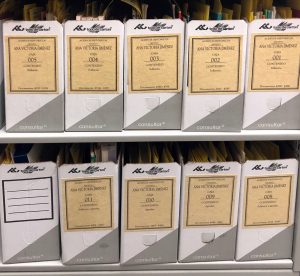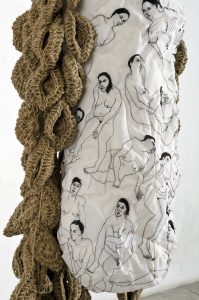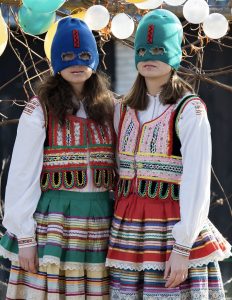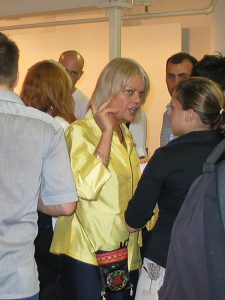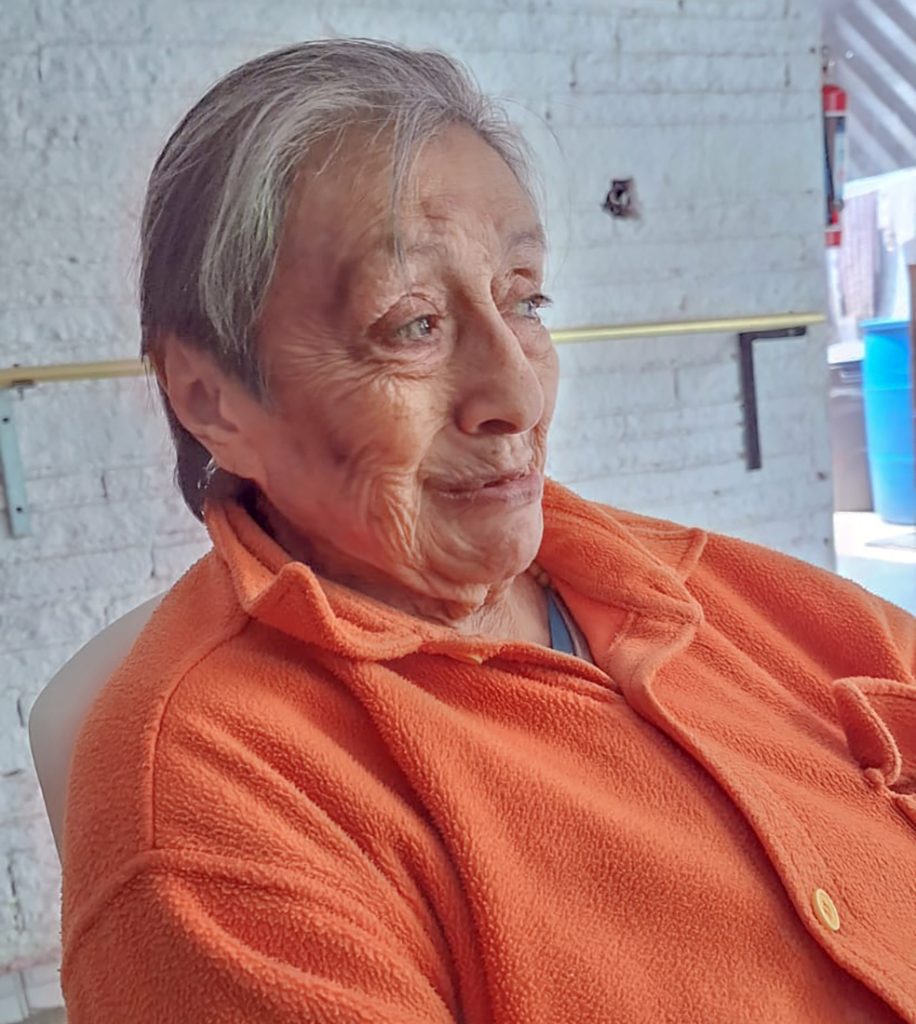
Ana Victoria Jiménez, Mexico City, 2025. Photograph courtesy of Nina Höchtl.
Ana Victoria Jiménez (Mexico City, 1941–2025) was one of the most pivotal figures in the construction of feminist memory in Mexico and Latin America. A photographer, artist, editor, archivist, and activist, she developed, over more than five decades, a transdisciplinary praxis that transformed how feminist struggles are documented, imagined, and transmitted. Her work, rigorous, grounded, and profoundly political, has become an indispensable point of reference for understanding how women have articulated forms of resistance, knowledge production, and community-making from the second half of the twentieth century to the present.
Her work was, in essence, political not because of the identity of the women she photographed, but because of the feminist methodology through which she constructed each image, each publication, and each archival gesture. Ana Victoria understood feminism as an everyday ethic, a way of seeing, a mode of building community. Moreover, that coherence profoundly shaped the artistic, documentary, and editorial fields of her time.
Militancy, vision, and method: feminism as a historical practice
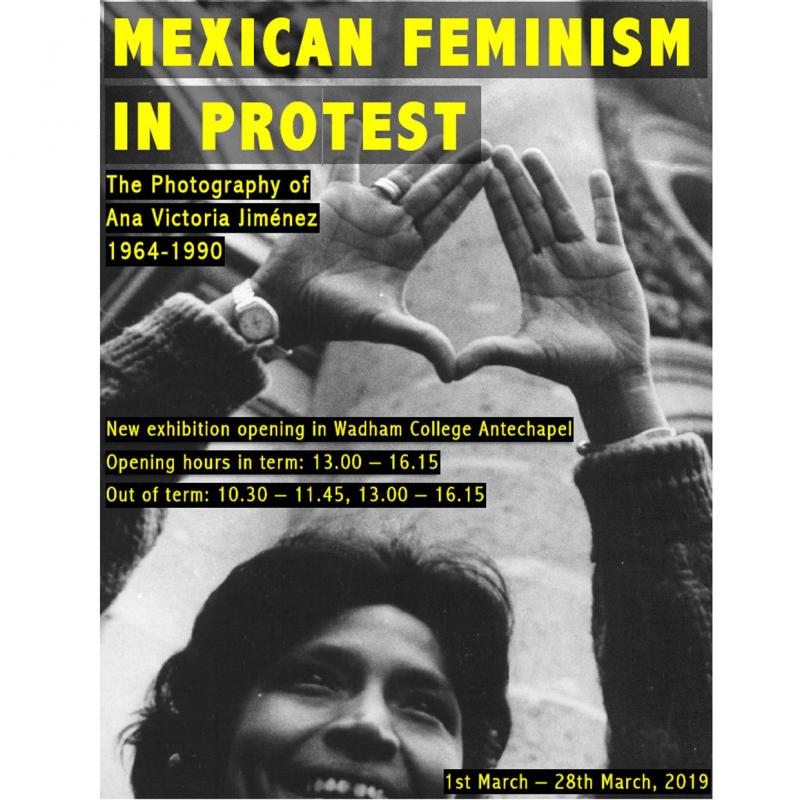
Cover of the book Mexican Feminism in Protest. The Photography of Ana Victoria Jiménez, 1964–1990. Courtesy of the Ana Victoria Jiménez Archive, Francisco Xavier Clavigero Library, Universidad Iberoamericana. Source: the Latin American Centre, University of Oxford.
Since the 1960s, Jiménez became involved in forms of militancy that exposed the structural inequalities present within leftist organizations. Her departure from the Partido Comunista Mexicano (Mexican Communist Party), precisely due to the persistence of sexism within the party, marked a turning point that led her to participate in projects now considered foundational to the genealogy of Mexican feminism: the Unión Nacional de Mujeres Mexicanas (National Union of Mexican Women) and Mujeres en Acción Solidaria (Women in Solidarity Action), among other initiatives that sought to articulate collective demands from a critical and autonomous feminist perspective.
Her entry into the feminist art collective Tlacuilas y Retrateras (Tlacuilas and Portraitists) in 1984 represented her most radical commitment to an aesthetics of resistance. Together with other artists, she organized iconic actions such as the Fiesta de XV años (Fifteenth Birthday Celebration) at the Academia de San Carlos and presented the work El juego de la sirena (The Mermaid’s Game), in which the image itself became a site of rupture, denunciation, and political speculation.
These practices did not arise from a formalist aesthetics, but from a feminist understanding of art as a tool for producing counter-imaginaries, fissuring hegemonic discourses, and creating community.
A photographer of the movement: three decades of documentation, affect, and care
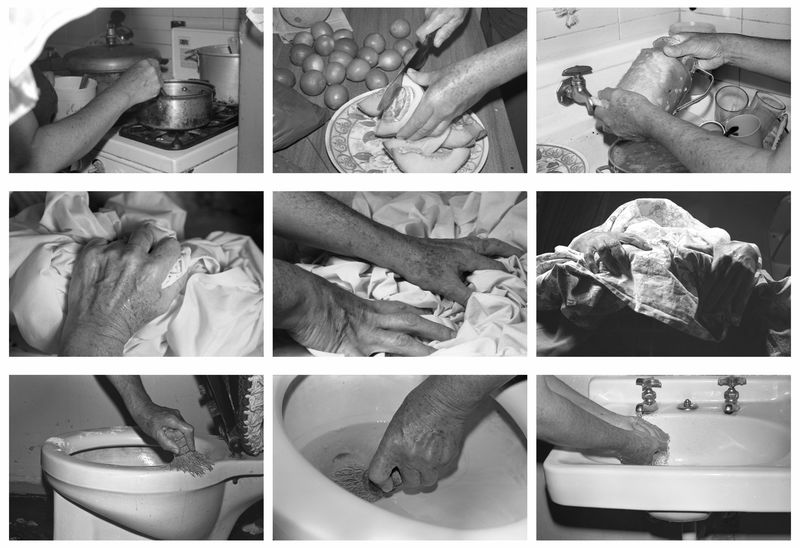
Ana Victoria Jiménez, Cuaderno de tareas / Work planner 1978–81. Andrea Ancira, Nina Hoechtl, Ana Victoria Jiménez (coords), published by Mark Pezinger Books, Tumbalacasa Ediciones, Academy of Fine Arts Vienna
Between 1970 and 1990, Ana Victoria Jiménez sustained a body of work that is indispensable today: she tirelessly documented marches, congresses, gatherings, performances, protests, collective actions, exhibitions, and feminist organizing spaces. Her archive records not only Mexico City, but also the proliferation of movements across various states in the country and throughout Latin American territories.
Her camera captured bodies in action, agreements among women, gestures of community, spaces of self-defense, and political imagination. Unlike other militant photographic records, her work is characterized by an intimate, embodied gaze, in which the archive is not an act of distancing but of accompaniment.
As a visual artist, she developed projects that extended photography into experimental formats:
- Cuaderno de Tareas (Homework Notebook), an unpublished work conceived as a weekly planner that made visible women’s domestic labor and their use of time;
- Columpio sobre el precipicio (Swing Over the Precipice, 1985), a self-published photographic narrative that exceeded the conventional boundaries of the documentary genre.
Today, her work is inscribed in the history of Latin American feminist art not only for its content but also for its radically situated methodology.
It is impossible to understand Jiménez’s trajectory without acknowledging her forceful editorial work. Between 1982 and 1992, she worked at the Instituto de Investigaciones Económicas (Institute of Economic Research) at UNAM, where she edited books and directed the journal Problemas del Desarrollo (Problems of Development). Concurrently, she developed independent publications that became essential tools for political education and feminist organizing:
- LUPE. Cartilla de alfabetización para mujeres. Todas aprendiendo de todas (LUPE: Literacy Primer for Women. All Learning from Each Other, 1986 and 1996)
- Mujeres rurales ante el nuevo milenio (Rural Women Facing the New Millennium, 1994)
- Sembradoras de futuros. Memoria de la Unión Nacional de Mujeres Mexicanas (Sowers of Futures: Memory of the National Union of Mexican Women, 2000)
- La lucha por la reivindicación de las empleadas del hogar (The Struggle for the Rights of Domestic Workers, Colectivo Atabal, 2002)
These works are not mere documents. They are instruments of education, thought, and collective action, in which editing is understood as a community-based practice and a feminist politics of transmission.
The Ana Victoria Jiménez Archive: a memory that sustains the movement
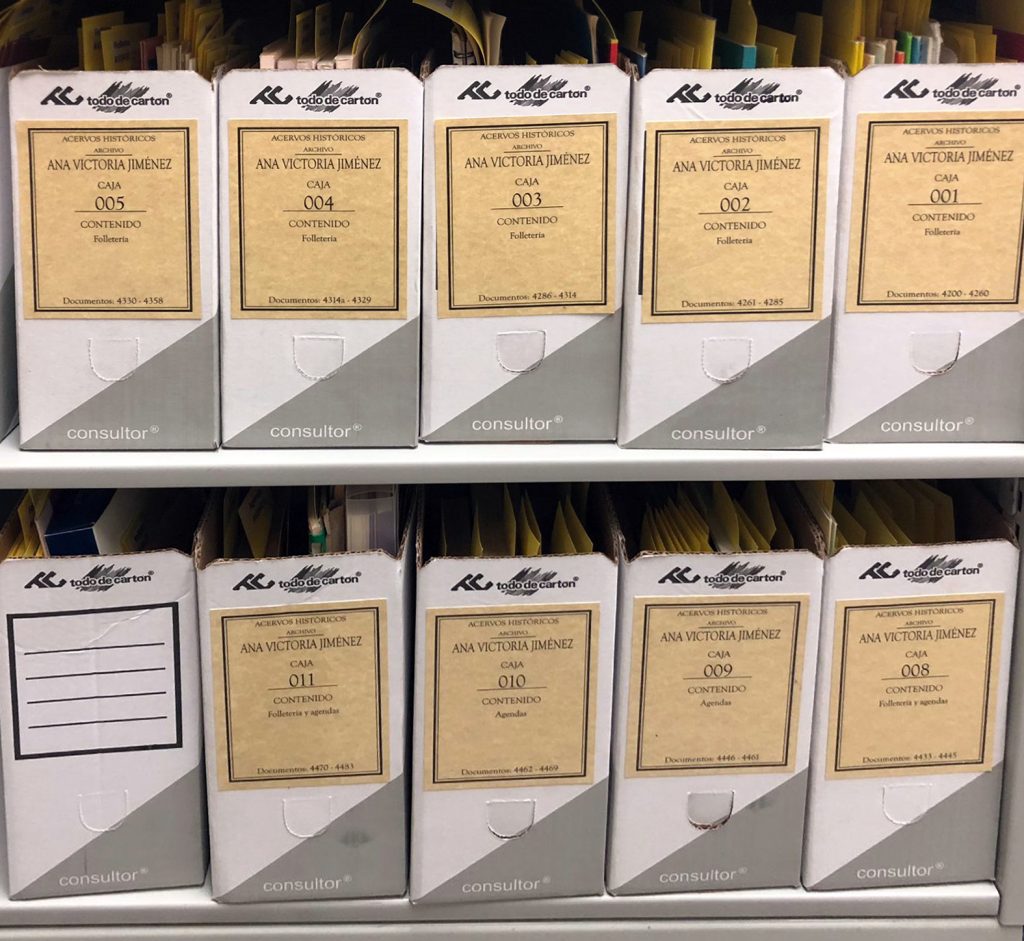
Ana Victoria Jiménez Archive of the Feminist Movement in Mexico (1970–1990). Photographic, hemerographic, and bibliographic documents preserved at the “Francisco Xavier Clavigero” Library, Universidad Iberoamericana. Image courtesy of the Memory of the World Programme, Mexico. Source: memoriadelmundo.org.mx.
Perhaps her most monumental legacy is the Archivo Ana Victoria Jiménez (Ana Victoria Jiménez Archive), a documentary, photographic, hemerographic, and bibliographic compendium that preserves more than three decades of the feminist movement in Mexico. It contains:
- Minutes and agreements
- Calls to action and legal documents
- Denunciations of unpaid domestic labor
- Materials on the organization of older women
- Ephemera: flyers, posters, theater and performance programs
- Iconic feminist publications such as La Revuelta (The Revolt) or FEM
- More than 3,000 photographs of feminist actions, protests, performances, and meetings
The archive is a paradigmatic example of what feminist archival theory has conceptualized as a practice of care: recording so as not to forget, preserving to sustain, organizing to transmit.
In 2011, Jiménez donated the archive to the Biblioteca Francisco Xavier Clavigero (Francisco Xavier Clavigero Library) at Universidad Iberoamericana, where it is currently accessible. In 2024, UNESCO recognized it as part of the Memoria del Mundo (Memory of the World) program, affirming its global relevance and confirming the depth of Jiménez’s contribution to the world’s feminist heritage.
A life devoted to building community networks
Ana Victoria Jiménez was a leader in the broadest sense of the term: she accompanied processes, articulated networks, and sustained feminist memory at a time when many institutions did not consider it worthy of preservation. Her transdisciplinary work as researcher, artist, editor, and archivist produced a political-aesthetic model that remains alive in the practices of new generations.
Until the end of her life, she maintained her commitment to community activism, to documenting struggles, and to creating working methodologies that broke away from patriarchal modes of producing knowledge.
From INESMagazina, we honor the legacy of Ana Victoria Jiménez not only for what she produced but for what she made possible: the networks of women she helped weave, the memories she rescued from oblivion, the feminist methods she embodied, and the genealogies that allow us today to think and inhabit feminism as a transformative practice.
Her archive, her vision, and her ethical insistence will continue to open paths.
Thank you, Ana Victoria. Your legacy sustains us.
